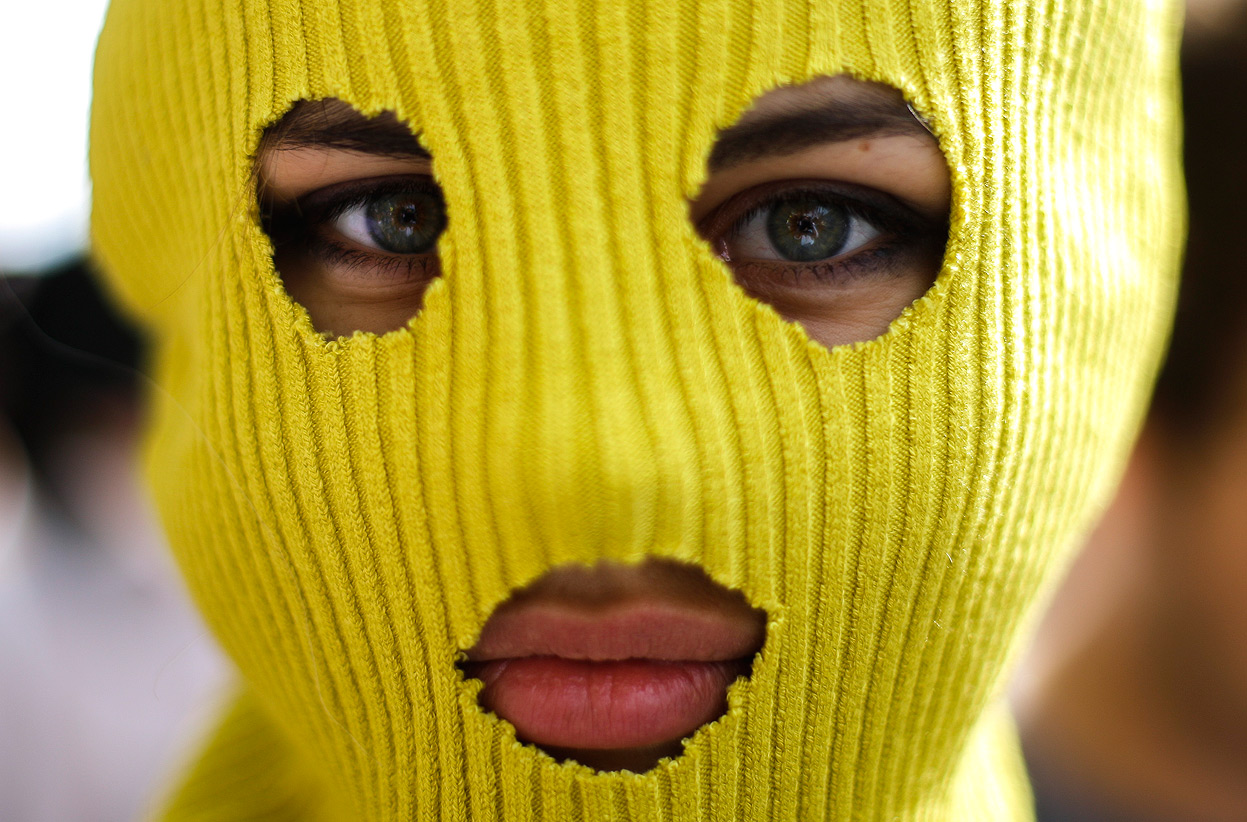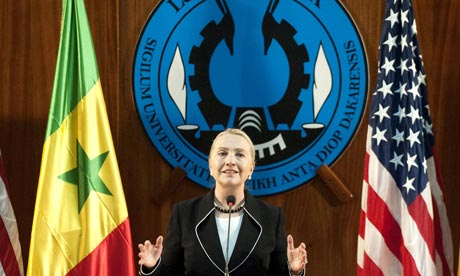Pussy Riot was founded in 2011 as a punk rock protest group in Moscow, Russia, and was initially comprised of a group of at least ten women aged 20 to 30 years old. Since their inception, the group has changed the world’s view on Russia, exposing the country’s violation of LGBT rights, human rights, and its alarming prison conditions. This article analyzes the cultural significance of Pussy Riot, beginning with the release of two of the group’s prominent members from prison (Nadezhda Tolokonnikova and Maria Alyokhina) and leading up to the Sochi 2014 Olympics. This article provides an example of how women can positively alter violent patriarchal regimes and generate awareness of global inequality.
[captionpix align=”left” theme=”elegant” width=”300″ imgsrc=”http://natoassociation.ca/wp-content/uploads/2014/02/Pussy_Riot_-_Denis_Bochkarev_5.jpg” captiontext=” Pussy Riot”]
Hooliganism
Pussy Riot members Nadezhda Tolokonnikova and Maria Alyokhina have become international symbols of anti-Putin politics. Tolokonnikova and Alyokhina staged controversial activities in protest of the government’s repressive policies, including unauthorized performances in public locations that were edited into music videos and posted on the internet. Following the making of one of their videos which took place in the Russian Orthodox Church, Tolokonnikova and Alyokhina were arrested in March 2012 and charged with hooliganism. They were both held in custody without bail until their trial in late July 2012. In August 2012, they were sentenced to two years in prison. In December 2013 Tolokonnikova and Alyokhina were released by Russian authorities. Many critics have stated that Putin released these political prisoners on purpose to recreate a positive image for Russia before the Sochi 2014 Olympics. If this was Putin’s actual motive for releasing both Tolokonnikova and Alyokhina, along with other political prisoners, the important role that dissenting political women play in promoting a country’s international image is evident.
Cultural Significance
While Tolokonnikova and Alyokhina were on trial, they captured international attention of prominent celebrities such as Paul McCartney and Madonna. Moreover, Human Rights groups such as Amnesty International and politicians like Angela Merkel have reached out to support these women. Russian snowboarder, Alexey Sobolev, who was participating in a qualifying match at the Sochi Olympics on 6 February 2014, posed for a picture with his snow board that featured a women holding a knife and wearing the same outfit worn by members of Pussy Riot. This kind of cultural attention is significant for several reasons, foremost among them that it is a group of young, pro-LGBT women speaking out against authoritarianism and discrimination in Russia.
[captionpix align=”left” theme=”elegant” width=”300″ imgsrc=”http://natoassociation.ca/wp-content/uploads/2014/02/article-0-1B4A77B000000578-486_634x449.jpg” captiontext=”Alexey Sobolev”]
Russia’s LGBT Situation
In the early and mid-nineties, Russian laws exercised more tolerance of homosexuals compared to today. For example, in 1993 homosexual relationships were decriminalized, and in 1997 transgendered Russians were allowed to change their legal gender on identity documents. Despite this evidence of a liberal attitude, the Russian government still objected to LGBT rights by denying permits for Pride Parades and intimidating LGBT activists. In more recent years, Russia took a more hardline stance on LGBT rights. In June 2013, Russia adopted a new law that would ban propaganda of non-traditional sexual relationships to minors, signed by Putin on June 29. Anti-LGBT legislation in Russia has also resulted in a rise of violence and hate crimes. ILGA-Europe, the European Region of the International Lesbian, Gay, Bisexual, Trans and Intersex Association conducted an assessment of the living conditions of LGBT peoples in 49 European countries, and Russia was ranked as the most dangerous place for LGBT people to live.
Pussy Riot has brought significant attention to issues of women’s rights and gender identity in a male-dominated society. In 2012 in Russia, women made up only 13% of deputies at the national level and 6% at the federal level. Russia was ranked 96th by the Inter-Parliamentary Union in having the least women participate in politics. The women of Pussy Riot have refused these gender norms and have demanded equal rights for women and for LGBT people in Russia. Their presence in the public eye continues to bring international attention to the political situation on gender in Russia. The Russian punk rock group proves that women can have a powerful political voice, even when shut out from conventional political platforms, by adopting dissenting political tactics. Their positions as mothers, women, and leaders against inequality can empower future generations to fight for democratic values in Russia.



